Yesterday, Korean Air premiered their Airbus A380 to Prague on their regular scheduled flight from Seoul. I was fortunate enough to receive an invitation to welcome the aircraft to Prague.
This was the third A380 operation to Prague since its introduction to service. The first was a Lufthansa bird, which came to Prague for crew/diversion support training, and then Emirates last year on a medical diversion.
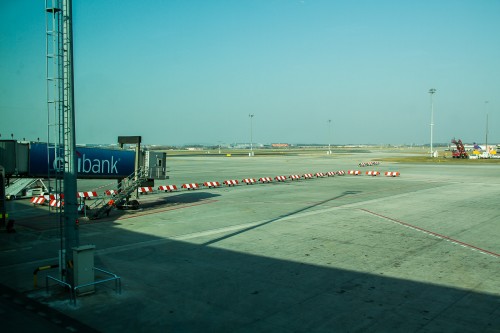
A special viewing area set up for the event in the adjacent gate – Photo: Jacob Pfleger | AirlineReporter
Korean Air presently operate eight A380’s in their fleet and they deploy them primarily on their key routes to Los Angeles and Hong Kong; this one-off flight to Prague therefore came as a bit of a surprise. The reason behind this aircraft substitution (in lieu of the regular A330/B777 mix on the route) was due to a major EU technology conference in Hanover and the requirement for a large business class cabin.
Korean Air operates the least-densely-configured A380. The lower deck consists of 12 first class seats and 301 economy class seats with a generous 34-inch pitch. The upper deck is all business class, with a 94-seat cabin -this is by far the largest business class cabin on an airliner (mixed-class) to date.
Upon arrival at the airport, all invitees for the event were required to check-in and we were issued special boarding passes. After the formalities and a security check, I made my way to the gate where a selection of food and beverages was available. There was also a stage set up for later announcements by various dignitaries and airline/airport management.
After a few glasses of champagne it was time to board the buses for an air-side photo shoot of the aircraft’s arrival. While the location/lighting were not the most ideal for photography, I was too excited to care as I got to witness a landing of the worlds largest commercial jet from a distance of no more than one football pitch.
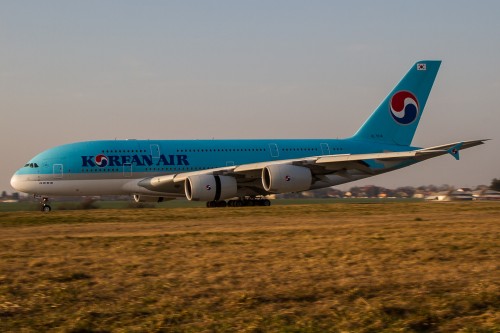
Watching an A380 arrival this close can simply be described as awesome! Photo: Jacob Pfleger | AirlineReporter
Following the landing, we made our way hurriedly back to the gate area where a whole gate position had been blocked off for the event, allowing ample movement to get in the best position for the water cannon salute and subsequent gate arrival.
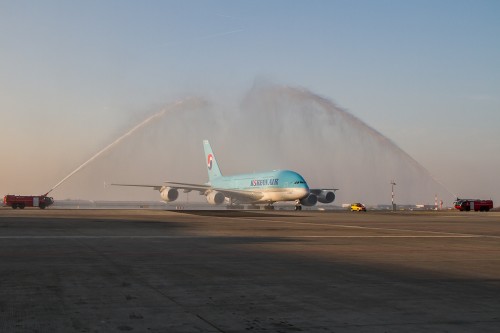
A water cannon salute welcomes the Korean Air A380 to Prague for the first time Photo: Jacob Pfleger | AirlineReporter
The water canon salute took almost five minutes to complete given the slow taxi of the aircraft (maybe the pilots were just trying to get a free wash). After, I made my way back into the terminal where more refreshments had been laid out and numerous speeches were given by various management, as well as the assistant transport minister for Czech Republic, and the Korean Ambassador.
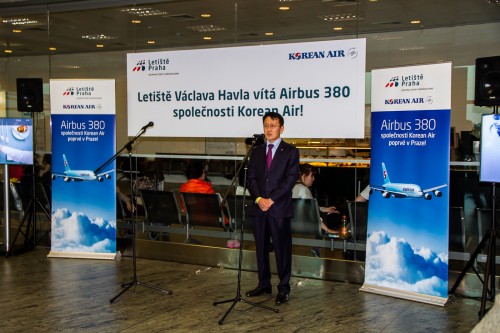
Korean Air’s Regional Manager for Central Europe gives a speech welcoming the aircraft to Prague Photo: Jacob Pfleger | AirlineReporter
Sadly, for now, Korean Air’s A330/B777s are set to return to Prague for the foreseeable future, but we can only hope the A380 will return on a more regular basis.
With Korean Air due to take delivery of more A380s this year, and the ever-increasing demand on the route during the summer season (Korean Air presently operate a B747-400 on the route on selected days) the A380 really could make a more regular appearance in Prague in the future.
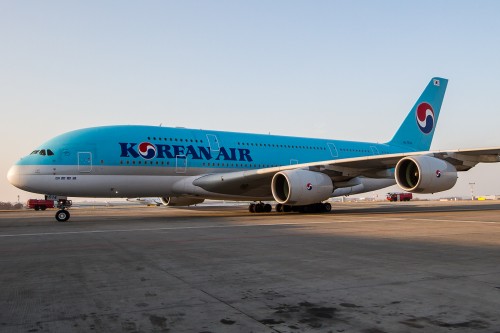
Sadly, the first and last A380 in Prague on a scheduled flight for some time Photo: Jacob Pfleger | AirlineReporter
I would like to take this opportunity to thank Korean Air, Czech Airlines, and Prague Airport for organizing this event and making it a huge success, not just with the AvGeek community, but also the general public, which clearly show enthusiasm for aviation here in Czech Republic.

All events hosted by Prague Airport/Czech Airlines were generously catered, with no shortage of beer or champagne Photo: Jacob Pfleger | AirlineReporter
This enthusiasm was clearly made evident by the large crowds surrounding the perimeter fence; I would estimate no less than 1,500 people came out to welcome the aircraft to Prague.
Comments are closed here.
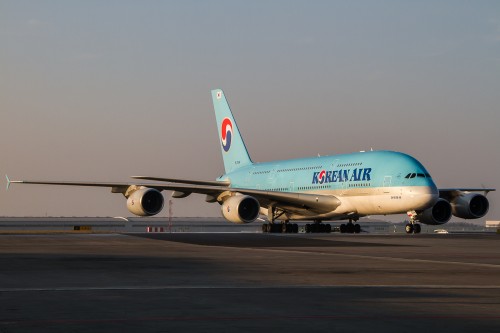
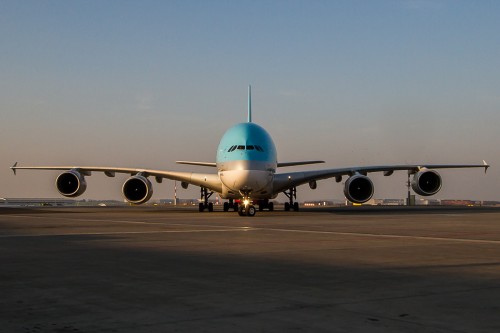
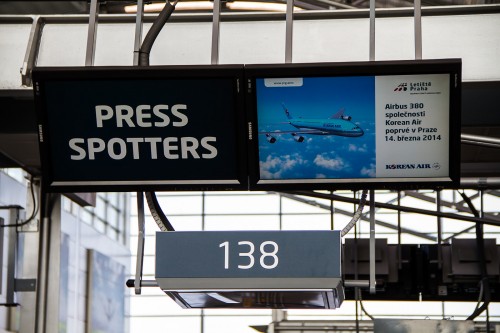
I believe the 777 flight never turned south to the Indian ocean, at least NOT during the so-called 8 hours of flight. Assigning a Destroyer and a search plane to an area 6 times the size or the US is hardly a commitment by our government based on any serious location belief. Nor during this period do I think the plane crashed. I think it landed at a pre-determined location to the north — possibly Pakistan. |||| The central question is … why was it hijacked? There had to be a purpose for taking the plane AND the argument of using it as a future MISSILE for destruction of some US (or wherever) target is ridiculous — and I seriously doubt the suicide theory. |||| SO, the really undisclosed question is WHAT was on the plane of value (in the bagged compartment) and, as Bernie implies, did all or part of this BAGGAGE etc escape x-ray? The reports I have read so far suggest that ALL items in storage have been assessed and cleared. WHAT evidence is there (where / when) that some or all of the contents of the cargo could not / was not verified before the flight departed. OR that the airports baggage detection equipment was NOT working at the point the plane’s cargo would normally (SHOULD) have been assessed — and it took off anyway? Where is the “published” evidence of this — or what leads one to suspect this, other then one’s perception? |||| By the way, I do think the cargo is where the focus of this investigation should be (if it is not already the case, but not purposely being vetted)? We need more discussion on the CARGO of this plane.
Wrong story, Bruce. Might get more response if your comment was in the correct one.